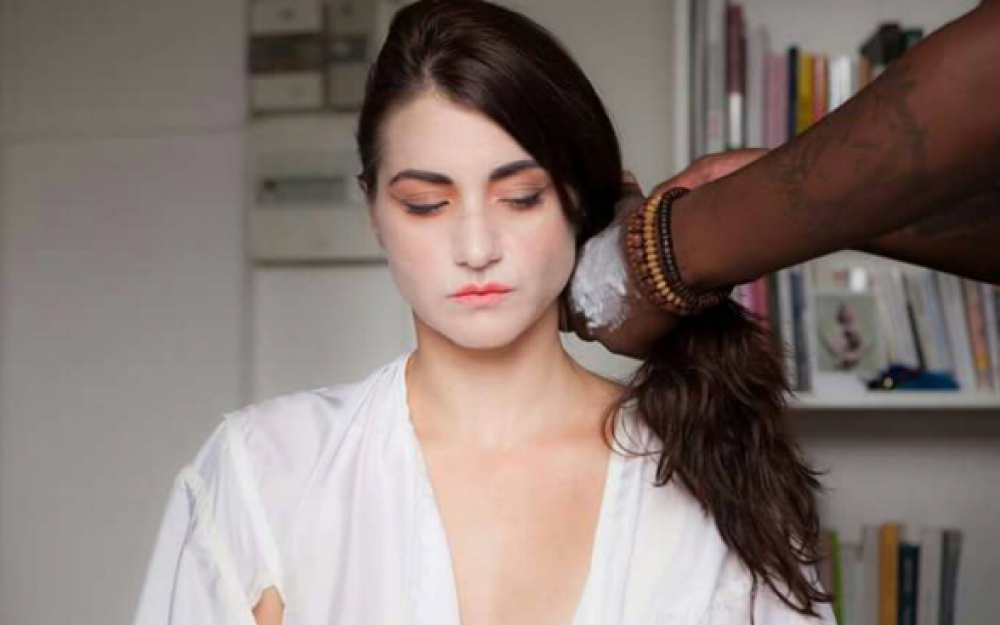
Deborah de Robertis was acquitted on charges of indecent exposure on February 1, reports La Parisienne. The artist was brought before the Correctional Court of Paris in connection with two performance pieces featuring nudity that she staged without permission in local museums.
The court found that there was not significant evidence to say that de Robertis’s performance was sexual exhibitionism.
Although numerous performances by the artist have made headlines—including her graphic 2014 recreation of Gustave Courbet’s L’Origine du monde (Origin of the World), in which she sat in front of the 1866 work with her vagina displayed to museumgoers—only two incidents were being considered in the case.
Deborah de Robertis recreating a Bettina Rheims photograph of Monica Belucci. Courtesy of Deborah de Robertis.
The first, which took place in March, saw de Robertis stage a performance called I Want You to Lick My Ketchup at Paris’s Maison Européenne de la Photographie. Wearing a breast-baring red vinyl jacket, the artist posed in front of a Bettina Rheims photo, recreating Monica Bellucci’s pose with a bottle of ketchup by suggestively pouring the condiment on her chest.
In September, de Robertis dressed as a naked Barbie doll, with a long blonde wig, fake plastic breasts, and artificial pubic hair, at Paris’s Musée des Arts Décoratifs, in protest of the unrealistic body image many believe is promoted by the popular children’s toy. At the time, the museum was holding an exhibition celebrating Barbie.
Deborah de Robertis, I Want You to Lick My Ketchup (2016). a performance at Paris’s Maison Européenne de la Photographie. Courtesy of Deborah De Robertis/photographer Guilmaume Belvèze.
Through her work, de Robertis aims to demonstrate that her own naked body can be just as much a work of art as the female nudes depicted in great masterpieces or critically-acclaimed contemporary artworks.
Tewfik Bouzenoune, de Robertis’s lawyer, praised the court’s decision as just, telling La Parisienne that the French laws regarding public nudity are imprecise. “How can we define a ‘state of nudity’? It is far too vague.”
De Robertis was also pleased with the verdict, which affirms, in her opinion, that her performances can be categorized as art. “It’s perfect for me since as I am working on a series of performances in other museums,” she told La Parisienne.
If found guilty, de Robertis could have been fined up to €2,000 ($2,130).
Quotes in this article were translated from the French by Astrid de Maismont.